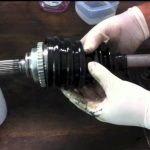
Catalytic converters are not one of the easiest parts of a car to steal, yet many car owners fall victim to catalytic converter theft.
For most cars, all you need is a saw or a screwdriver, a jack, a few seconds, little technical know-how, and a blatant disregard for the rules and regulations that govern a state.
However, despite how hard it is, certain cars are least likely to have their catalytic converter stolen. Now, the question is, which cars are least likely to have catalytic converters stolen?
The cars that are least likely to have their catalytic converter stolen are some American brands such as Dodge, Chrysler, Chevrolet, and Ford, because they had less valuable converters, and some of the new Honda Accord models, Subaru, Mazda, Nissan, and Jeep because the number of precious metals used in the converter designs are limited.
Do All Cars Have Catalytic Converters?
Yes, all cars after the 1970s to date have catalytic converters. Although, in truth, catalytic converters were only a later innovation to control emissions from cars.
As long as the car was made after 1975 when catalytic converters were made mandatory, then the car certainly has a catalytic converter.
Safe to say that every car on the road at the time you are reading this article surely has a catalytic converter, except if the car has fallen victim to catalytic converter theft, or the owner has deliberately removed the part from his vehicle.
Which Cars are Least Likely to Have Catalytic Converter Stolen?
There are many cars in recent times whose catalytic converters are least likely to be stolen, and this is due to varieties of reasons, ranging from:
- The value of such catalytic converters
- What materials the catalytic converters are made of, and
- Where the converters are located in the car.
Here are some of the cars that are least likely to have their catalytic converter stolen:
1. Cars Produced Before 1974
All cars produced before the year 1974 have no risk of having their catalytic converters stolen, this is because they have no catalytic converters.
Catalytic converters only became a required invention in vehicles in 1975, so, trying to steal a catalytic converter from the car produced before 1974 is like trying to steal a womb from a man.
2. Electric Cars
Like cars produced before 1974, electric cars do not have catalytic converters, because they do not have problems with emissions.
Electric cars like Tesla does not use fuel that is responsible for carbon monoxide. They simply use electricity to get recharged or powered up.
Electric cars come with chargers that are plugged into an electric source that then recharges them. As a result, they do not need catalytic converters, and thieves cannot steal from them what they do not have.
3. Diesel Cars
Cars that run on diesel also do not have to worry about having their catalytic converters stolen, not because they do not have catalytic converters, but because the catalytic converters on them are worthless in the scrapyard.
Catalytic converters thieves look for catalytic converters with certain precious metals in them, and the types of converters that diesel vehicles use are different and do not have these precious metals.
As a result, the catalytic converters in diesel cars are least likely to get stolen. A thief wouldn’t steal what he considers not valuable enough for him.
4. Cars With Low Ground Clearance
These are mostly exotic cars. They are the type of cars that you cannot lie under to operate on.
These types of cars can’t be easily vandalized underneath, because, to get underneath, you need more than a jack, and you need more than one person to do the job. It’s just not worth it at the end of the day.
Cars with low ground clearance are cars like Ferrari, Lamborghini, Audi render, the latest 2022 Hyundai cars, 2022 Suzuki cars, and Volkswagen Vento, among others.
5. Cars With Inbuilt Catalytic Converters
Cars brands such as BMW, Audi, Volkswagen, and Honda have now re-positioned the catalytic converters of their vehicles.
The latest models of these cars now have their catalytic converters featured in the inner parts of the vehicle, around the engine, such that thieves are unable to reach the catalytic converters to steal them.
Situating catalytic converters closer to the engine has made it hard work for thieves, and so, the theft of catalytic converters in these cars is less likely.
6. Cars with Catalytic Converters with Less Precious Metals
Most American brands fall into this category.
They are the least likely cars to fall victim to catalytic converter theft, and this is because they don’t feature so many precious metals in their catalytic converters.
Some of the American brands referred to here include cars such as Jeep, Dodge, Ford, Chevrolet, and Chrysler.
Other non-American brands that fall under this category include some Hyundai models, some Nissan models, some Subaru cars, some Honda models, as well as Mazda vehicles.
How to Protect Your Catalytic Converter from Theft
Your catalytic converter is an easy target for thieves because they can easily remove it from your vehicle within seconds. For this reason, you have to do extra hard work to protect your catalytic converter from theft.
Here are the things you can do to guarantee the safety of your converter:
- Don’t Park in Secluded Parking Lots or Corners: Avoid parking where your eyes can’t monitor, or where you can’t see people that pass by the car. Don’t park where very few people pass through. Your car as a whole is vulnerable in places like this.
- Park in CCTV Areas: In addition to that, ensure that where you are parking your vehicle has a working CCTV camera that can easily spot anyone that goes into your car. That way, thieves will know that if they go near your car, they’d be caught on camera.
- Install Anti-theft Mechanisms in your Vehicle: They could be cameras or alarm systems that go off as soon as someone tries to tamper with your catalytic converter or any part of your vehicle.
- Brand Your Catalytic Converter: A branded catalytic converter screams, ‘THIS CATALYTIC CONVERTER BELONGS TO ME! DO NOT STEAL!’
When a catalytic converter thief knows that you have branded your catalytic converter, it will dissuade them from stealing it, because they know that they can’t sell such and it won’t be traced back to them.
You can brand your catalytic converter by scratching your name on it, or better still, your plate number, or painting it with something that cannot be scratched off.
Conclusion
Find out if your vehicle is an easy target for catalytic converter theft. This is the first step toward protecting your catalytic converter.
Some cars are least likely to have their catalytic converter stolen, and some cars are easy prey to catalytic converter theft.
Once you discover your car falls in the latter category, then you should take preemptive measures to protect your car from catalytic converter thieves.









